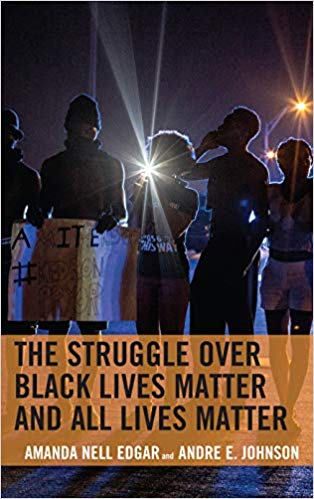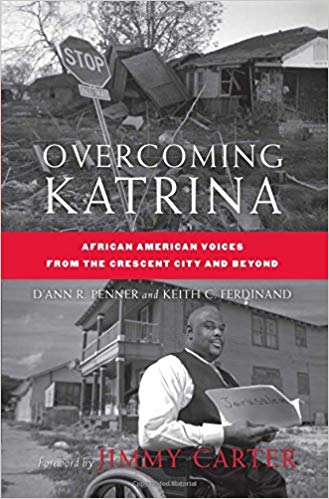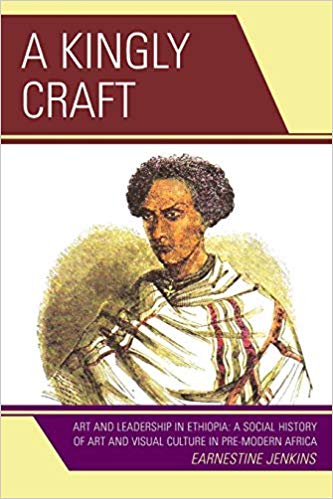The Benjamin L. Hooks Institute for Social Change
Books Sponsored by the Hooks Institute
Race, Economics, and the Politics of Educational Change: The Dynamics of School District Consolidation in Shelby County, Tennessee (University of Tennessee Press, 2018)
 Race, Economics, and the Politics of Educational Change (2018) provides an analysis
of the 2010 consolidation of Memphis City Schools and Shelby County Schools. From
multiple academic perspectives, including history, sociology, legal, and political
theory, the book places the largest school consolidation in United States history
within the context of the civil rights history of the mid-south.
Race, Economics, and the Politics of Educational Change (2018) provides an analysis
of the 2010 consolidation of Memphis City Schools and Shelby County Schools. From
multiple academic perspectives, including history, sociology, legal, and political
theory, the book places the largest school consolidation in United States history
within the context of the civil rights history of the mid-south.
The research initiative that led to the book’s publication was originally spearheaded by Paul M. Wright, then associate director of the Hooks Institute, and now professor at Northern Illinois University. Contributing essay writers include faculty at the University of Memphis and other universities.
This book is the most comprehensive examination to date of how the intersection of race and class in Memphis has created entrenched inequalities for African American students, which historically and currently continues to limit the potential of Memphis.
The Struggle over Black Lives Matter and All Lives Matter (Lexington Books, 2018)
By Amanda Nell Edgar and Andre E. Johnson
 In The Struggle over Black Lives Matter and All Lives Matter, Amanda Nell Edgar and
Andre E. Johnson examine the surprisingly complex relationship between Black Lives
Matter and All Lives Matter as it unfolds on social media and in offline interpersonal
relationships. Exploring cultural influences like family history, fear, religion,
postracialism, and workplace pressure, Edgar and Johnson trace the meanings of these
movements from the perspectives of ordinary participants. The Struggle over Black
Lives Matter and All Lives Matter highlights the motivations for investing in social
movements and countermovements to show how history, both remembered and misremembered,
bubbles beneath the surface of online social justice campaigns. Through participation
in these contemporary movements, online social media users enact continuations of
American history through a lens of their own past experiences. This book ties together
online and offline, national and local, and personal and political to understand one
of the defining social justice struggles of our time.
In The Struggle over Black Lives Matter and All Lives Matter, Amanda Nell Edgar and
Andre E. Johnson examine the surprisingly complex relationship between Black Lives
Matter and All Lives Matter as it unfolds on social media and in offline interpersonal
relationships. Exploring cultural influences like family history, fear, religion,
postracialism, and workplace pressure, Edgar and Johnson trace the meanings of these
movements from the perspectives of ordinary participants. The Struggle over Black
Lives Matter and All Lives Matter highlights the motivations for investing in social
movements and countermovements to show how history, both remembered and misremembered,
bubbles beneath the surface of online social justice campaigns. Through participation
in these contemporary movements, online social media users enact continuations of
American history through a lens of their own past experiences. This book ties together
online and offline, national and local, and personal and political to understand one
of the defining social justice struggles of our time.
The Memphis Story: Teaching A Community to Swim (Amazon Digital Services LLC, 2018)
By Carol Irwin and Richard Irwin
 Learning to swim is considered to be a common life passage, but it is not happening
is some neighborhoods. Underserved children are often not exposed to swimming instruction
and, therefore, drown at high rates. This unimaginable heartbreaking tragedy can be
prevented. Teaching all children to be safe around water and to swim at a skilled
level is highly recommended by health experts and agencies, such as the American Academy
of Pediatrics, the American Red Cross, and the Centers for Disease Control and Prevention.
If you are interested in starting a free or low cost “learn to swim” program in your
community, this is the book for you. The Memphis Story: Teaching a Community to Swim
is a historical and descriptive chronicle that details the story of how the Splash
Mid-South "learn to swim" program was begun, and how it has continued to overcome
challenges in order to teach over 7,000 Memphis area children since 2009 to be safe
in the water and swim for life. It offers what important groups or organizations in
a community are essential with which to partner for a successful program, and gives
examples of how you can best market, promote, and research your new program. This
book offers the reader not only the Memphis story, but how other communities across
the US have managed to teach thousands of children to swim… and save lives.
Learning to swim is considered to be a common life passage, but it is not happening
is some neighborhoods. Underserved children are often not exposed to swimming instruction
and, therefore, drown at high rates. This unimaginable heartbreaking tragedy can be
prevented. Teaching all children to be safe around water and to swim at a skilled
level is highly recommended by health experts and agencies, such as the American Academy
of Pediatrics, the American Red Cross, and the Centers for Disease Control and Prevention.
If you are interested in starting a free or low cost “learn to swim” program in your
community, this is the book for you. The Memphis Story: Teaching a Community to Swim
is a historical and descriptive chronicle that details the story of how the Splash
Mid-South "learn to swim" program was begun, and how it has continued to overcome
challenges in order to teach over 7,000 Memphis area children since 2009 to be safe
in the water and swim for life. It offers what important groups or organizations in
a community are essential with which to partner for a successful program, and gives
examples of how you can best market, promote, and research your new program. This
book offers the reader not only the Memphis story, but how other communities across
the US have managed to teach thousands of children to swim… and save lives.
Overcoming Katrina: African American Voices from the Crescent City and Beyond (Palgrave Books. 2009)
By D'ann R. Penner and Keith C. Ferdinand
 Overcoming Katrina tells the stories of 27 New Orleanians as they fought to survive
Hurricane Katrina and its aftermath. Their oral histories offer first-hand experiences:
three days on a roof with Navy veteran Leonard Smith; at the convention center with
waitress Eleanor Thornton; and with Willie Pitford, an elevator man, as he rescued
150 people in New Orleans East. Overcoming approaches the question of why New Orleans
matters, from perspectives of the individuals who lived, loved, worked, and celebrated
life and death there prior to being scattered across the country by Hurricane Katrina. This
book's twenty-seven narrators range from Mack Slan, a conservative businessman who
disparages the younger generation for not sharing his ability to make "good, rational
decisions," to Kalamu ya Salaam, who was followed by the New Orleans Police Department
for several years as a militant defender of Black Power in the late 1960s and '70s.
These narratives are memorials to the corner stores, the Baptist churches, the community
health clinics, and those streets where the aunties stood on the corner, and whose
physical traces have now all been washed away. They conclude with visions of a safer,
equitably rebuilt New Orleans. *Scroll down for more audio excerpts from Overcoming
Katrina*.
Overcoming Katrina tells the stories of 27 New Orleanians as they fought to survive
Hurricane Katrina and its aftermath. Their oral histories offer first-hand experiences:
three days on a roof with Navy veteran Leonard Smith; at the convention center with
waitress Eleanor Thornton; and with Willie Pitford, an elevator man, as he rescued
150 people in New Orleans East. Overcoming approaches the question of why New Orleans
matters, from perspectives of the individuals who lived, loved, worked, and celebrated
life and death there prior to being scattered across the country by Hurricane Katrina. This
book's twenty-seven narrators range from Mack Slan, a conservative businessman who
disparages the younger generation for not sharing his ability to make "good, rational
decisions," to Kalamu ya Salaam, who was followed by the New Orleans Police Department
for several years as a militant defender of Black Power in the late 1960s and '70s.
These narratives are memorials to the corner stores, the Baptist churches, the community
health clinics, and those streets where the aunties stood on the corner, and whose
physical traces have now all been washed away. They conclude with visions of a safer,
equitably rebuilt New Orleans. *Scroll down for more audio excerpts from Overcoming
Katrina*.
A Kingly Craft: Art and Leadership in Ethiopia: A Social History of Art and Visual Culture in Pre-Modern Africa (University Press of America, February 8, 2008)
By Earnestine Jenkins
 A Kingly Craft is a significant contribution to the interdisciplinary fields of African
art history and visual studies. Ethiopian illuminated manuscripts have been regarded
as remarkable expressions of Christian art and material culture. However, until recently,
the elite art form of manuscript production has not been rigorously examined within
specific social, cultural, and political contexts. This work is an innovative study
of eighteenth and nineteenth century manuscript painting during a critical period
of Ethiopian history known as the "Era of the Princes."
A Kingly Craft is a significant contribution to the interdisciplinary fields of African
art history and visual studies. Ethiopian illuminated manuscripts have been regarded
as remarkable expressions of Christian art and material culture. However, until recently,
the elite art form of manuscript production has not been rigorously examined within
specific social, cultural, and political contexts. This work is an innovative study
of eighteenth and nineteenth century manuscript painting during a critical period
of Ethiopian history known as the "Era of the Princes."
Focusing on manuscripts commissioned by members of an influential dynasty in the province of Shewa, the book draws attention to the relationship between art and patronage. Shewan leaders commissioned books with illustrations that were increasingly narrative and secular, visually documenting historical events, everyday life at court, and the portrayal of political concepts. This analysis also explores how local leaders in an independent African kingdom used art to establish links with a glorious past, thereby legitimizing their authority and preserving their great deeds for the future.
